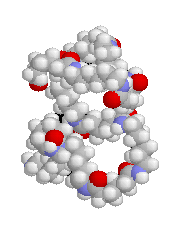Checking Out the Varied Applications and Benefits of Polymers in Different Industries
Polymers, with their varied series of properties and functionalities, have become important in different markets, each enjoying special gain from their application. Polymers. From improving security and performance in the automobile industry to transforming medical devices in the healthcare sector, polymers play a crucial duty. Moreover, their environmentally friendly nature is changing the landscape of sustainability practices. As we look into the depths of polymers in electronic devices, we uncover advanced technologies, while their structural stability changes the world of building and facilities. The pervasive impact of polymers throughout markets is a testament to their adaptability and flexibility, forming the future of numerous fields.
Automotive Market Applications
Polymers play a critical duty in improving the efficiency and toughness of various parts within the automobile market. These versatile products are extensively used in the production of different components, ranging from indoor parts to under-the-hood applications. One famous use polymers in the vehicle market remains in the manufacturing of light-weight parts. By replacing typical metal parts with polymer-based choices, automobiles can attain better fuel effectiveness without endangering on strength or security.

Healthcare Industry Advantages
In various health care applications, the advantages of using polymers are commonly acknowledged for their varied series of beneficial homes. Polymers play a critical duty in the healthcare industry due to their flexibility, biocompatibility, and cost-effectiveness. One of the main benefits of polymers in health care is their ability to be customized to particular requirements, such as flexibility, toughness, and biodegradability, making them excellent for a variety of clinical applications.
Polymer-based materials are extensively utilized in clinical gadgets, such as catheters, implants, prosthetics, and drug distribution systems, because of their biocompatibility and ability to mimic all-natural cells. These materials can lower the risk of sensitive responses or beings rejected, improving patient safety and end results. Furthermore, polymers are lightweight, making them suitable for wearable clinical gadgets and guaranteeing patient convenience.
In addition, polymers allow the development of cutting-edge therapy techniques, such as hydrogels for cells design and nanocomposites for targeted medication distribution. Their convenience of processing and sanitation makes them vital for keeping high criteria of health in healthcare settings. On the whole, the diverse advantages of polymers add substantially to innovations in medical innovation and patient care.
Ecological Advantages of Polymers

Moreover, polymers can add to energy cost savings as a result of their lightweight nature. In sectors such as transportation, light-weight polymer materials can help in reducing fuel intake and greenhouse gas discharges. Furthermore, polymers can make it possible for the advancement of energy-efficient items such as insulation materials that improve energy preservation in structures.
Furthermore, polymers play an essential function in reducing water pollution. As an example, using polymer-based filtration systems can effectively remove pollutants and impurities from wastewater, guarding water click for more sources and ecosystems. In general, the environmental advantages of polymers make them beneficial possessions in promoting sustainability and environment-friendly methods across various sectors.
Polymers in Electronic Devices and Innovation
Considering the increasing need for ingenious and sustainable solutions in modern-day markets, the combination of innovative polymer modern technologies in the realm of electronics and modern technology has emerged as a pivotal approach for driving effectiveness and performance. Polymers have actually reinvented the electronics industry by enabling the manufacturing of lighter, much more flexible, and durable digital gadgets. From mobile phones to medical gadgets, polymers play an important function in improving product design and performance.
One significant advantage of polymers in electronic devices is their insulating residential properties, which assist protect fragile electronic parts from environmental variables and electrical disturbance. In addition, polymers are vital in the development of adaptable screens, wearable modern technology, and published electronics, using limitless possibilities for developing smart and interconnected tools.
Furthermore, the usage of polymers in digital packaging has actually led to innovations in miniaturization and thermal monitoring, enhancing the total performance and reliability of digital systems. As innovation remains to develop, the versatility and versatility of polymers will certainly drive additionally development in the electronic devices industry, forming the future of innovation.
Function of Polymers in Building and Infrastructure
The assimilation of advanced polymer products in building and framework tasks has revolutionized the way structures are designed and built in modern times. Polymers offer numerous benefits in the construction sector as a result of resource their convenience, resilience, and cost-effectiveness. One essential role of polymers in construction is their usage in layers and sealers, offering protection against ecological aspects such as wetness, UV radiation, and rust. Furthermore, polymers are used in the manufacturing of light-weight and high-strength composite products, improving the structural stability of buildings while reducing overall weight.
Additionally, polymers play a vital role in lasting building practices by allowing the growth of energy-efficient structures. Shielding products made from polymers assist regulate indoor temperature levels, minimizing the need for heating and cooling systems and ultimately reducing power intake - Polymers.
Verdict
In verdict, polymers play a crucial function in numerous industries such as vehicle, healthcare, environmental, electronics, and building. From boosting fuel effectiveness in automobiles to boosting clinical tools, polymers supply countless advantages.